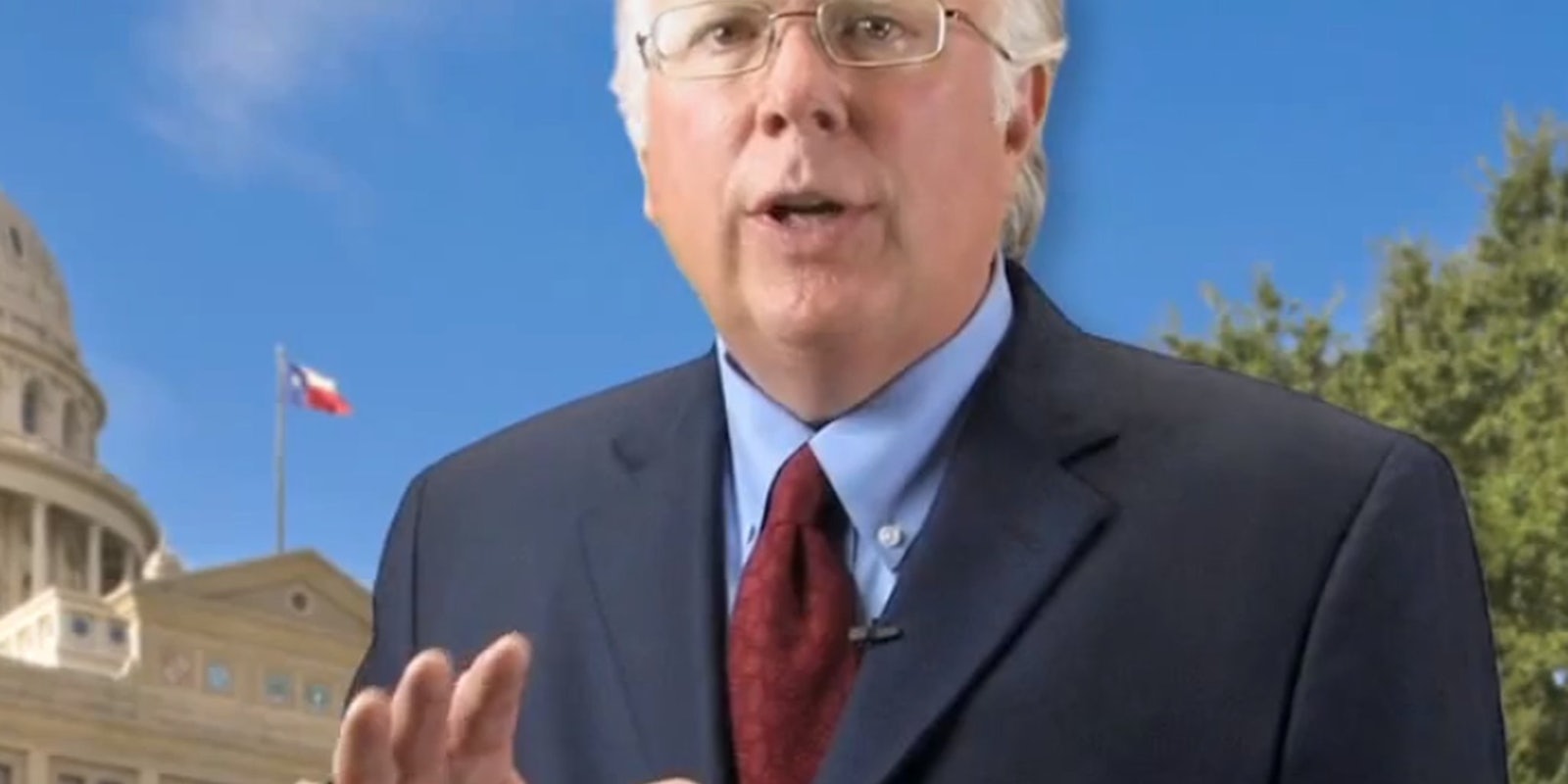Mudslinging bloggers in Texas might get a little more protection from folks who want to sue them for their words.
Texas state representative Todd Hunter (R-Corpus Christi) has introduced a bill that would give website owners accused of defamation a grace period to correct their content before they can be found guilty.
House Bill 1759, which is currently before the committee on Judiciary & Civil Jurisprudence, would provide a buffer for online writers. Under it, anyone facing defamation charges could ask for evidence that they’re incorrect, and would have 90 days to correct or retract what they’ve published if they think it wouldn’t hold up in court.
“This out of court dispute resolution provides a stark contrast to defamation lawsuits, which, once filed, encourage publishers and subjects to stick to their guns and fight it out in a winner-take-all battle that is unlikely to benefit any party,” notes Harvard’s Digital Media Law Project.
“At that point, publishers typically adamantly support their legal right to publish what they have published in order to avoid liability, rather than considering extra-legal considerations like fairness and accuracy. “
More than half the states in the U.S. have existing, similar laws for print, radio, and television, but most of those laws, unlike Hunter’s, don’t explicitly extend to the Internet. Texas, however, is clearly forward-thinking when it comes to online free speech. It already has one on the books against the practice of SLAPP (Strategic Lawsuits Against Public Participation), the practice of accusing others of defamation with outrageous lawsuits in order to censor content.
Of course, the state legislature could be accused of getting a little too excited about the Internet. Representative Jeff Leach (R-Plano) recently introduced a law that would allow law enforcement to serve legal papers over Facebook.
Screengrab via Todd Hunter/YouTube


